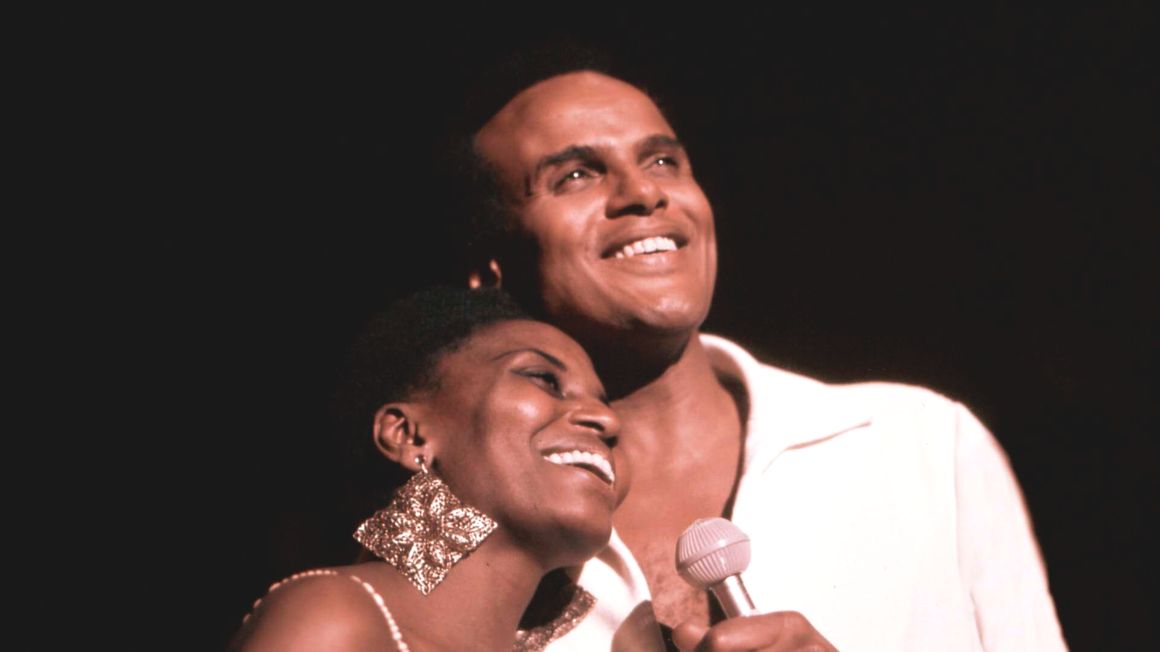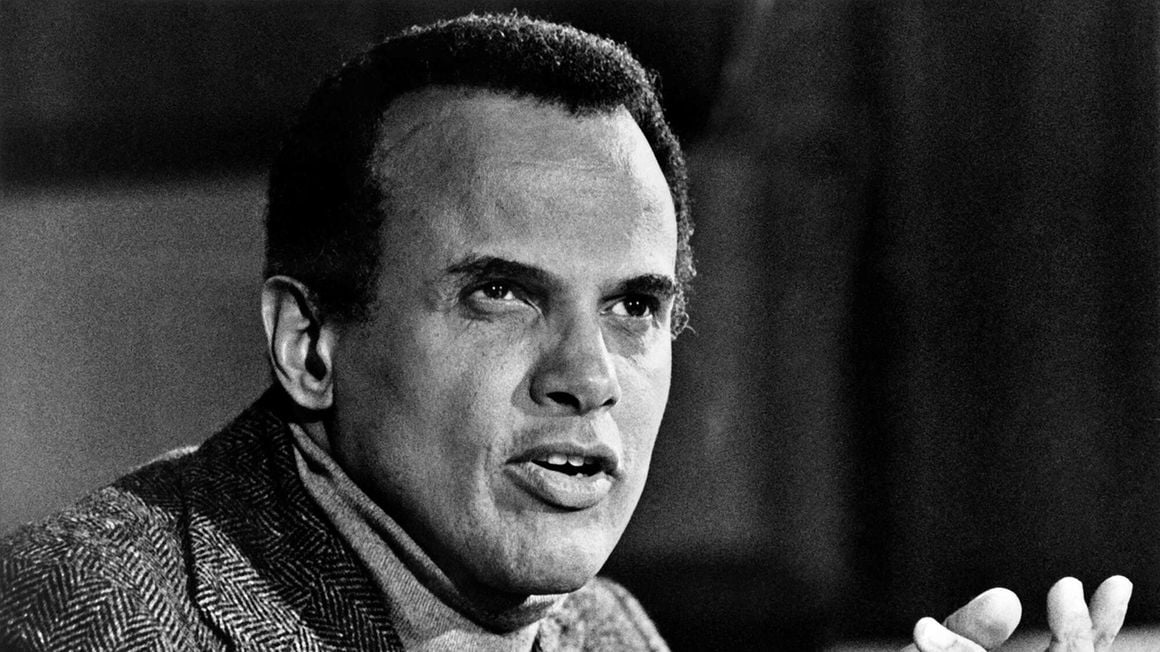“Day-o, Day-o. Daylight come and me wanna go home”: The Banana Boat Song (Jamaican folk song)
A cry of poor dock workers after a night shift loading bananas onto ships, became a civil rights anthem after it was recorded as a calypso song by American singer, actor and activist Harry Belafonte in 1956.
“Get them to sing your song and they will want to know who you are.”
This is the advice a young Belafonte received from his idol, Paul Robeson, who used his influence as a star of music and theatre to speak out against racial injustice in the US and elsewhere in the world
The title of Belafonte’s 2011 memoir My Song and accompanying documentary Sing your Song, were inspired by those words from Robeson.
Harry Belafonte who died on April 25 aged 96 transcended his status as the King of Calypso, Caribbean folk music that he turned into a global phenomenon in the late 1950s and 60s; he used his fame and resources as a leading singer and Hollywood star to champion social and political rights in the US.
He was a confidant of Dr Martin Luther King Jr. supporting the activities of the US civil rights leader, including posting bail whenever Dr King was arrested and hiring a babysitter for his young children.
Belafonte will also be remembered for his support of the liberation movement in Africa.

In 1956, after meeting Kenyan liberation leader Tom Mboya who was seeking support to obtain scholarships from American universities for Kenyans, in preparation for the transition from colonial rule, Belafonte organised a benefit event in Harlem that raised money for the first two student airlifts.
It was Mboya as Chairman of the Committee for the Independence celebrations who invited Belafonte and his protégé, the South African songstress Miriam Makeba, to Kenya as guests during the 1963 celebrations.
Harold George Bellanfanti Jr. was born in Harlem, New York City, the son of Jamaican immigrants on March 1, 1927.
As a seven-year-old child, his mother would take him to the famous Apollo Theatre in New York to watch jazz greats like Cab Calloway, Count Basie, Duke Ellington, Billie Holliday and Ella Fitzgerald.
At the age of 17 in 1944 he enlisted in the US Navy and trained as a storekeeper but left service barely a year later disillusioned by the segregation against black officers.
His interest turned to acting and he joined the American Negro Theatre in Harlem where he first crossed paths with Sidney Poitier a fellow son of West Indian immigrants who went on to become a lifelong friend and Hollywood’s first black leading man.
Belafonte joined drama school where his classmates included Tony Curtis and Marlon Brando, who had already made a name as a stage actor.
In his memoirs, Belafonte described the humiliation he faced when in the middle of an acting tour, a policeman followed him to the segregated bathroom and warned: ‘If you let go of one drop of your urine, you are dead.”
In July 1949, Belafonte recorded his first two singles at Capitol Records which returned poor sales but his reputation as a live performer grew as he played in bigger clubs and attracted jazz-loving audiences.
He never saw himself as a singer and joked that he was a great actor only because he convinced so many people that he was actually a singer.

To expand his repertoire, he would spend time in the Library of Congress digging for international folk songs including many calypso songs like Matilda about an unfaithful woman that became one of his signature songs.
His third album Calypso released in 1956 broke all the records becoming the first Long Play (LP) ever to sell a million copies thanks to classics like Jamaican Farewell, and Banana Boat Song (Day-O).
Belafonte recorded a live version of There’s a Hole In My Bucket as a duet with Odetta Holmes, hailed by Dr King as America’s Queen of Folk Music.
He also introduced Greek singer Nana Mouskouri to American audiences when they toured together for three years from 1963 and recorded an album together in 1966.
In 1985, as the drought and famine in Ethiopia caused death and misery, it was Belafonte who contacted producer Quincy Jones and set in motion the gathering of artists as the USA for Africa to record the charity album We Are the World.
“Harry said let’s get busy, let’s see how we can get involved like he did with everything else,” says Quincy Jones.
Belafonte played a leading role in the struggle against apartheid and it is fitting that his last studio album Paradise in Gazankulu in 1988 was a protest against the apartheid system and included South African artists like Brenda Fassie and the Soul Brothers.
Back in the US, he was a prominent voice against gang violence and American foreign policy, particularly in Cuba, Iraq and Venezuela.
When asked what he would choose as his epitaph, the response was prompt “Harry Belafonte, Patriot”.
Credit: Source link